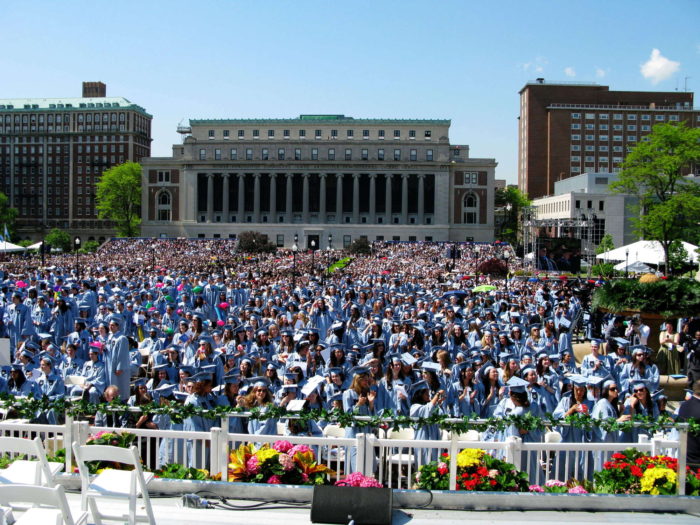The problem with “Commencement”
Campuses are full of students about to graduate in caps and gowns.

Did you think what I did the first time you heard the term “commencement” for graduation:
Wait. School is ending. It shouldn’t be called “Commencement.” It should be something about ending.
Then you realize you’re entering the world outside school, which doesn’t think as much about school as you do.
You realize life outside of school is just commencing, and the term makes sense.
Teaching experientially a while has led me to see the term different now and more of a problem than before.
The problem with “Commencement”
Saying school ends and the rest of life commences separates school from the rest of life, implying that you learn academic things in school separate from practical things outside school.
I’d have no problem with the separation if it led to students learning more but it doesn’t. Well, they may learn more academic stuff in school, but stuff that they don’t use after Commencement. I’m not saying liberal arts or any other fields aren’t valuable. I’m saying learning them in a purely academic way isn’t valuable.
I read more Aristotle with more enthusiasm after learning to learn experientially than in school. In school I read it to do well on a paper or test, divorced from the rest of life. School made the information abstract. Maybe something I could talk about at cocktail parties.
When I started learning leadership and motivation and emotions became important, I followed references to him. I was curious: who was this man and what did he write so long ago about things so interesting today. When I re-read him, it was like I was reading him for the first time. I didn’t remember anything from school.
An alternative
Instead of reinforcing a separation between school and the rest of life, I recommend encouraging teachers to tear down the figurative walls enclosing schools and draw from the rest of life, especially students’ interests. Instead of focusing on the content and information you want to teach, focus on the students, what they care about, and whom the can become.
Read my weekly newsletter

On initiative, leadership, the environment, and burpees